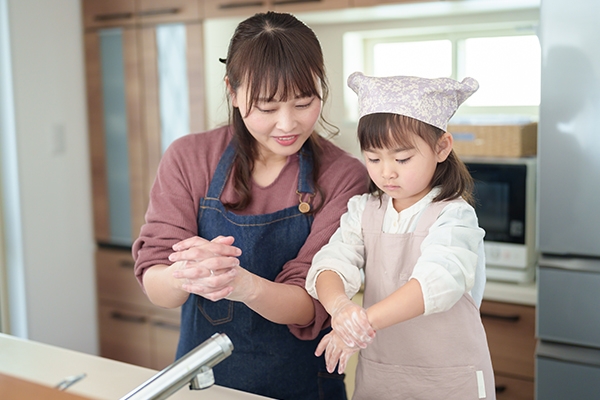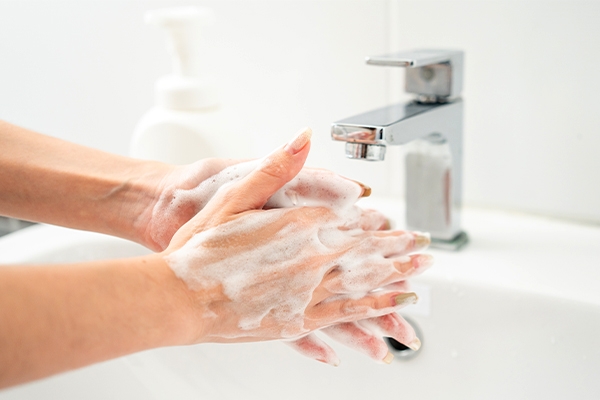The Worth of Hand Washing

Keeping your hands clean not only protects you from germs and diseases, but it also protects those around you. In fact, our hands contain 3,200 bacteria from 150 different species on average. Isn't it terrible?
How do germs enter the body? Right. Through unwashed hands. Various germs might easily enter our bodies through our hands after using the restroom or changing diapers. The hand inadvertently made contact with the eyes, nose, and mouth.
Germs enter our bodies when we touch germ-containing objects or when we cough or sneeze.
Germs are ubiquitous. They make people sick. To keep germs out of our bodies, we must practice proper hand washing with soap and running water. This behavior reduces the risk of diseases such as diarrhea by up to 30% and infections such as respiratory infections and skin and eye infections by up to 20%.
Some gastrointestinal and digestive tract infections can be fatal, especially in young children, the elderly, and persons with weakened immune systems.
Consider again. How many objects do you touch in a single day? Even while we cannot entirely eliminate germs from our hands, washing them frequently with soap and running water can help to reduce the spread of bacteria, viruses, and other pathogens.
How often should we wash our hands?

Hand cleanliness is a vital line of defense against all forms of disease. Hand washing has been practiced for over 150 years.
Many individuals died before the mid-nineteenth century from illnesses that may have been avoided with proper hand washing.
As a result, it is critical that we wash our hands with soap and running water before and after doing various activities, as well as in between activities.
1. Before eating
2. After:
- use the toilet;
- changing diapers;
- blowing your nose, coughing, or sneezing;
- using a tissue or handkerchief;
- smoking;
- handling waste or labor in the garden;
- holding animals.
3. Between:
- before, during, and after making meals;
- handling raw, cooked, or ready-to-eat foods;
- caring for a sick kid or other family member;
- arriving home, at someone else's house, or at work; and
- when hands appear unclean.
Why do you have to soap your hands? Liquid and solid soap aid in the removal of dirt and germs that adhere to the surface of the skin on the hands and nails during this process.
Hand washing effectively eliminates dirt and bacteria, minimizing the likelihood of infection.
How should you wash your hands?
- Wet your hands with running water. Turn the water off.
- Apply soap and lather for 20 seconds (or more).
- Rub both hands quickly over the entire surface and wrists.
- Rub the backs of your hands and wrists, between your fingers, and beneath your nails.
- Rinse well under running water to eliminate all soap residue.
- Dry your hands with a clean towel or air them out.
- It is better to use paper towels (or disposable cloth towels).
How should you use hand sanitizer?
If water is not available, this alcohol-based hand sanitizer can be used instead of washing hands. If you use hand sanitizer, be sure it has at least 60% alcohol.
How to use:
- Apply the product to your hand's palm. To confirm the amount, read the label.
- Make a fist with your hands.
- Rub it all over your hands and fingers until they are completely dry.
Keep your skin clean and moisturized
Of course, washing your hands too often until they are dry, red, and rough may be too much. If your hands break or bleed, this condition makes you more susceptible to infection by germs and bacteria.
To prevent your skin from drying out, use moisturizing soap, hand cream, or lotion after washing your hands.
Take into account soap and storage
Germs can survive on stale bar soap. Consider using liquid soap.
Don’t exaggerate
Washing one's hands excessively frequently may indicate anxiety or obsessive-compulsive disorder (OCD) in certain people, especially youngsters.
^^
Washing your hands is a simple but important step in protecting your health and preventing the spread of disease. Make handwashing a habit.



